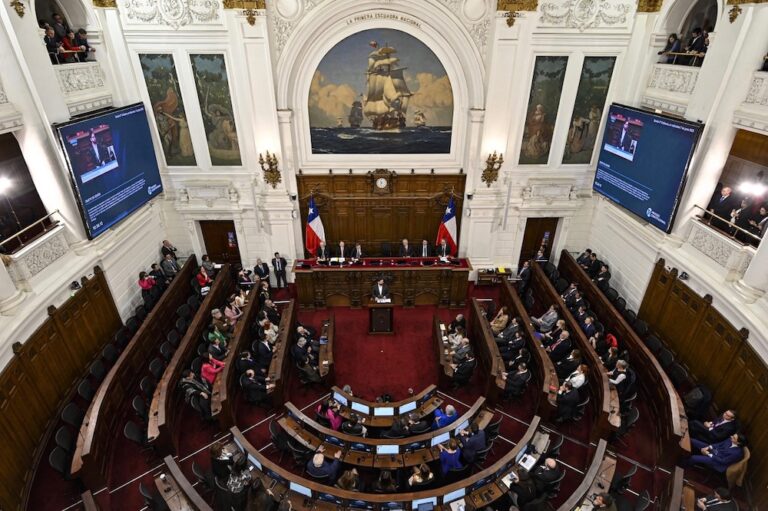(WPFC/IFEX) – The following is a 10 September 2002 WPFC letter to President Ricardo Lagos Escobar: September 10, 2002 His Excellency President Ricardo Lagos Escobar Presidency of the Republic The Moneda Palace Santiago, Chile Your Excellency: The World Press Freedom Committee (www.WPFC.org) wishes to congratulate you for submitting to Congress Bill 212-347, which would eliminate […]
(WPFC/IFEX) – The following is a 10 September 2002 WPFC letter to President Ricardo Lagos Escobar:
September 10, 2002
His Excellency President Ricardo Lagos Escobar
Presidency of the Republic
The Moneda Palace
Santiago, Chile
Your Excellency:
The World Press Freedom Committee (www.WPFC.org) wishes to congratulate you for submitting to Congress Bill 212-347, which would eliminate the concept of desacato from Chilean legislation.
Your decision is a first, yet fundamental, step for Chile to eliminate a set of laws that contradicts both Article One of your Constitution, which consecrates the principle of equality before the law, and the Inter-American Convention on Human Rights, to which your country is a signatory.
Your bill eliminates the desacato statute from seven different articles of your legislation. On one hand, Criminal Code Art. 263 is abolished, 264 is modified and 265 is re-written; and on the other hand, Code of Military Justice Articles 276, 284, 416 and 417 are also modified.
Desacato laws (archaic statutes inherited from colonial or autocratic times) unjustly shield public officials from the criticism of the rest of society. In Chile’s particular case, these seven laws protect 350 public officials, including yourself, from the scrutiny of the remaining 15 million Chileans.
“There is no doubt,” you correctly state in your Bill’s introduction, “that the existence of these laws in Chile has degraded into an unjustified privilege established to favor certain individuals, which contradicts Article One of the 1980’s Political Constitution, which consecrates the equality before the law of any person’s dignity and rights.”
The latest, most notorious example of this unjustified privilege is the case against TV commentator Eduardo Yáñez, whom after calling the Chilean justice system “immoral, cowardly and corrupt,” was charged by the Supreme Court with desacato.
Mr. Yáñez was treated like a criminal, spent one night in prison and has seen several of his fundamental liberties abolished because he exercised his right to free speech. Should he be found guilty, he could spend up to five years in prison.
As you correctly put it in your Bill’s introduction, “The existence of these statutes is incoherent with the functioning of a modern state. It does not seem reasonable that certain public officials enjoy an unjustified privilege, whereas the rest of society does not.”
Ever since the Inter-American Commission on Human Rights declared desacato laws incompatible with the American Convention in 1994, only two countries (Paraguay and Costa Rica) have followed its recommendation. Argentina eliminated it earlier. Now your initiative would strengthen Chile’s democratic credentials and lead the way for the other 17 Latin American nations that still have desacato laws on their books.
In a recent WPFC visit to Chile, we were given assurances by the leaders of Congress that as soon as they receive a bill eliminating desacato from your office, they would act diligently in order to approve it. You have done your part. Now we urge both deputies and senators to fulfill their words and quickly pass this landmark initiative that would earn Chile deserved praise throughout Latin America and the world.
Respectfully,
Jim Ottaway, Jr.
Chairman
World Press Freedom Committee


